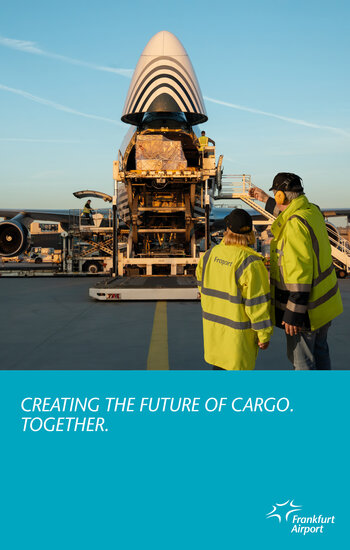The International Air Cargo Association (TIACA) has issued an e-commerce White Paper that pays tribute to the growing impact of e-commerce on the global cargo industry. By 2024, e-commerce comprised roughly 20% of air cargo volumes and is expected to double within a decade. In its White Paper, the association not only highlights the effects of the e-commerce boom on the various participants in the supply chain but also provides specific recommendations for optimizing e-commerce management along the entire transport process. The White Paper was compiled by a 14-member international Task Force, chaired by Nicolai Schaffner, Swissport, and Independent Consultant, Carl Kent.
e-commerce has led to a paradigm shift in international air freight. Driven by lockdowns during the Covid pandemic, consumer behavior has switched from traditional retail “brick and mortar” to online marketplaces, C2C platforms, and direct sales channels. Social media-based retail activity is speeding up this evolution as retail is now available around the clock and accessible via smart phone technology no matter where someone lives. Global payment systems support this “shop anywhere, anytime” mindset.

Descriptions are supplemented by recommendations for action
The white paper published by IATA is the first comprehensive approach to examining the impact of this trend on air freight. All in all, the 82-page compendium offers precise descriptions of the current situation as well as practical guidance for airlines, forwarding agents, ground handlers, airports, customs authorities, and regulators, on the hurdles that still need to be overcome to optimize the ever-increasing flow of e-commerce shipments. The great merit of the TIACA paper lies above all in these action-focused recommendations.
e-commerce impact on airlines
This is vividly illustrated in Chapter 06, which features opportunities and challenges for airlines arising from online retail.
There, the authors of the study emphasize that e-commerce has significantly changed the business activities of air cargo operators in three key ways: Firstly, online shopping has increased demand for express shipping, increasing the need for higher speed. As a consequence, carriers should shift their handling strategy, focusing on millions of small parcels rather than traditional bulk freight. Secondly, to meet the growing demand, major freight carriers need to expand their freighter fleets, with passenger airlines relying increasingly on e-commerce volumes to boost their revenues. Thirdly, carriers must be aware of increasing compliance costs and operational complexities resulting from stricter ICAO and state regulations, following the rise in undeclared lithium batteries, counterfeit goods, and customs fraud.
Industry-wide collaboration is needed
As further recommendations for airlines on how to deal with the e-commerce tsunami in a smart, efficient, and targeted manner, the authors of the white paper stress the need to streamline booking and tracking processes, as consumers now expect real-time updates on their shipments. Additionally, due to the growing requirement for last-mile delivery solutions, airlines should closely collaborate with logistics providers to ensure timely deliveries from airports to consumers’ doorsteps.
Furthermore, airlines must adopt advanced technologies, such as data analytics and automation, to enhance operational efficiency and manage the surge in volume effectively. This transformation also involves revising capacity management strategies to accommodate fluctuating e-commerce demands and ensuring adequate infrastructure is in place for handling increased cargo loads. At the same time, they point to competitive pressure from e-commerce giants such as Amazon, which are expanding their internal logistics activities and reducing their dependence on third-party carriers, and disrupting traditional air cargo business models.
Putting more focus on security issues
In a nutshell: cargo carriers should adapt their operational models to accommodate the surge in small, high-frequency e-commerce shipments. They should closely evaluate which additional infrastructure and fleet investments are required to handle the growing demand for express air freight services. Finally, keeping a close eye on security issues and compliance with customs regulations becomes increasingly important.
Subsequent chapters describe how postal services are responding to the growth in e-commerce shipments. Two adaptation strategies can be identified: some postal services are diversifying into e-commerce logistics, financial services, and digital innovations to counteract the decline in traditional mail volumes. Others are considering strategies such as reducing delivery frequency or focusing on higher-value services.
Ecological considerations
Sustainability is another chapter that is highlighted. Environmental aspects are becoming increasingly important for air freight and thus also for e-commerce logistics, the authors of the study believe. Charts and diagrams very clearly illustrate this assumption.
e-commerce and its effect on ground handlers
The impact of e-commerce on the activities of ground handling agents is also reflected. Ground handling activity is currently unregulated, with many differences existing between carriers in terms of standard ground handling operations and procedures. As such, a ground handler who represents multiple carriers is faced with managing various operational standards and deviations. As e-commerce grows, the role of the ground handler becomes even more important as volumes of small shipments often place additional burdens on facility and border management when compared to larger consolidated shipments. In addition, the quality requirements for employees are increasing.
Strategic guidance
The white paper concludes with the remark: “By adopting standardized practices, investing in digital infrastructure, and strengthening global cooperation, the air cargo industry can align with the future demands of e-commerce while ensuring safe, efficient, and environmentally responsible operations. TIACA’s strategic guidance offers a roadmap for stakeholders to navigate this evolution collaboratively and proactively.”
Those interested in the analysis should contact:
Rachael Negron, TIACA, PO Box 661510, Miami Springs, FL 33266-1510.
Phone: +1 786 265 7011 / e-mail: press@tiaca.org




